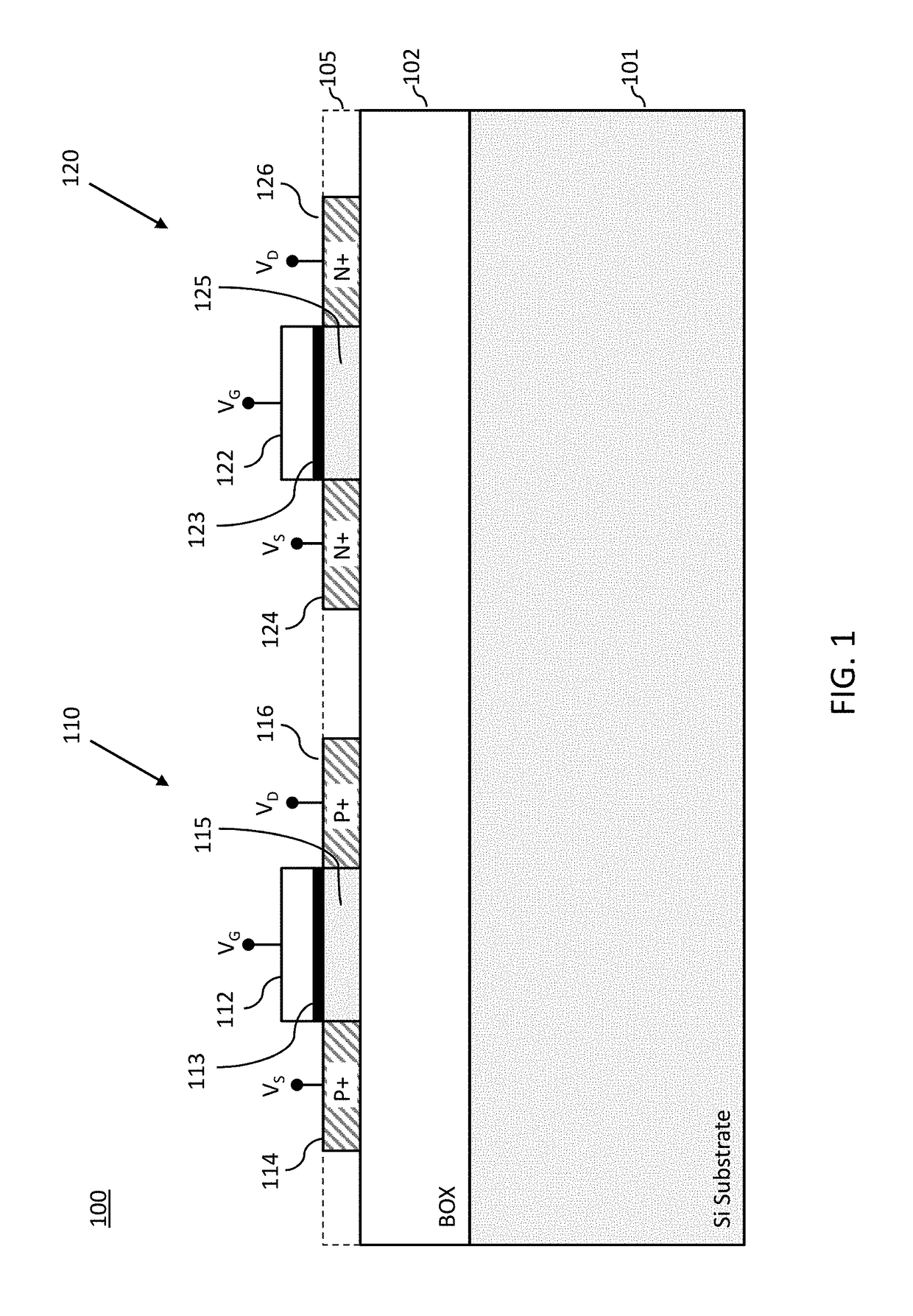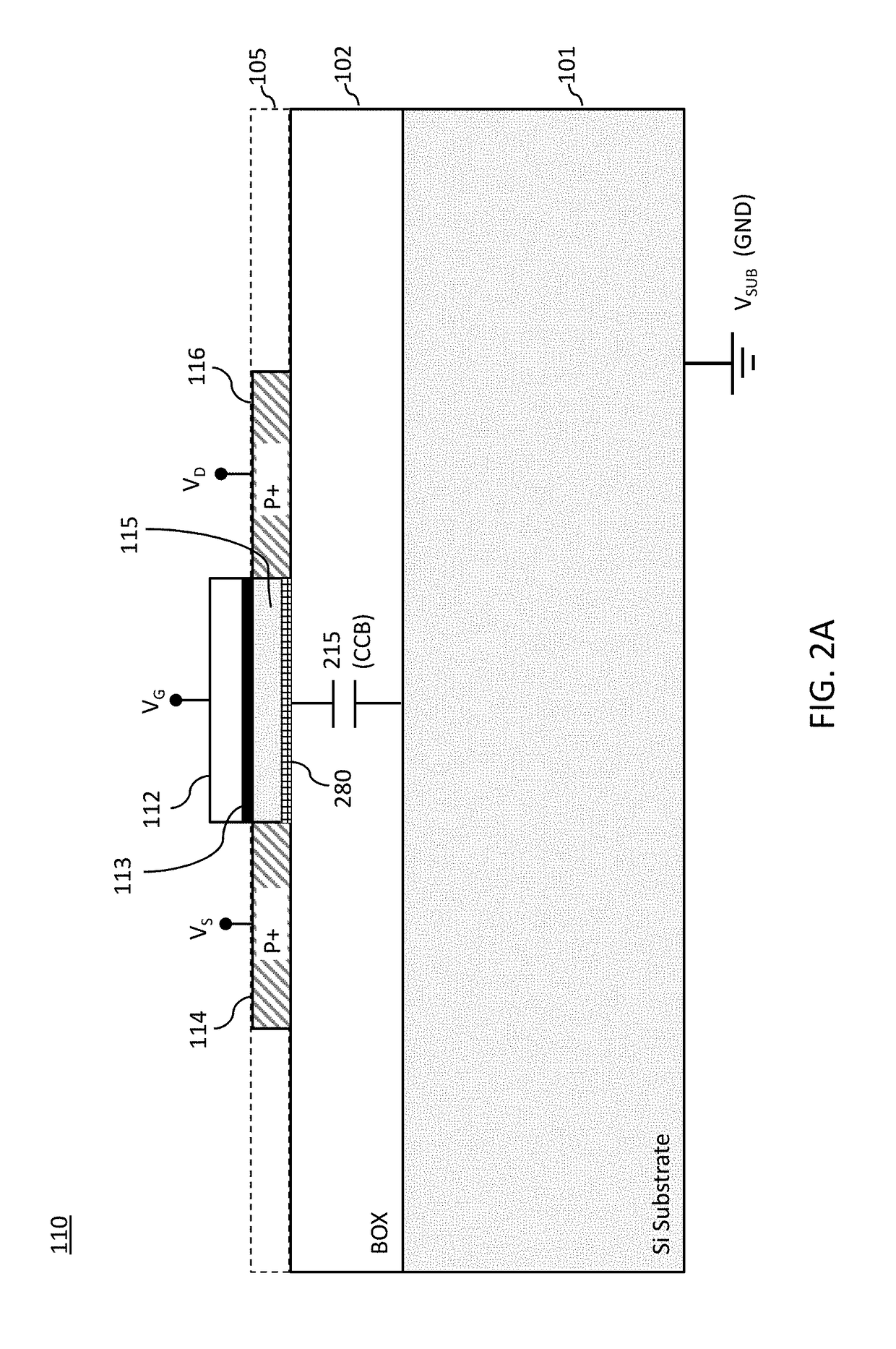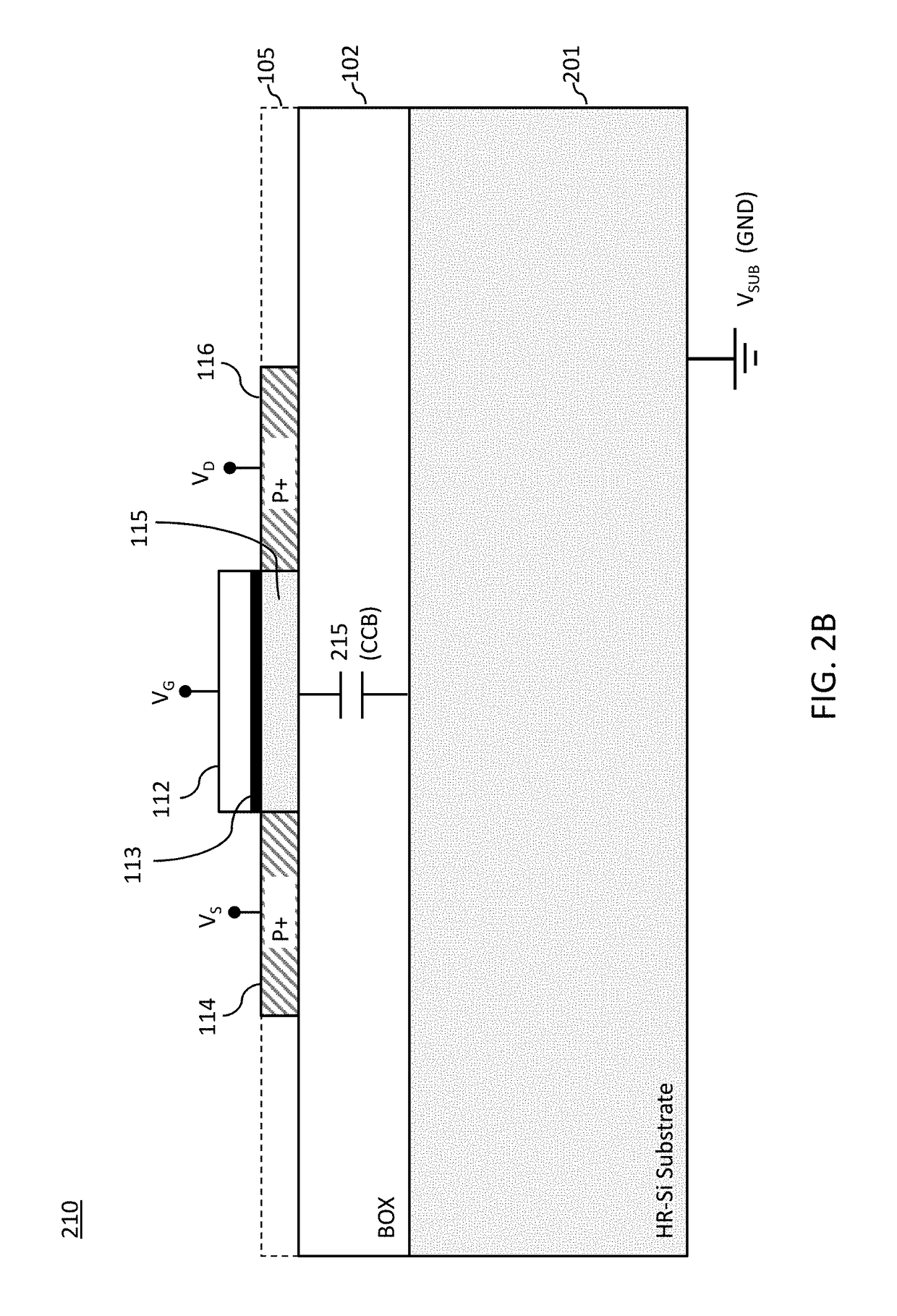Methods and structures for reducing back gate effect in a semiconductor device
a technology of back gate effect and semiconductor device, which is applied in the field of integrated circuits and ics, can solve problems such as unsatisfactory leakage currents, and achieve the effect of reducing the back gate effect in the silicon on insulator (soi) structur
- Summary
- Abstract
- Description
- Claims
- Application Information
AI Technical Summary
Benefits of technology
Problems solved by technology
Method used
Image
Examples
Embodiment Construction
[0026]The majority of integrated circuits, ICs, used in such applications as cell phones, personal computers and consumer electronics, operate at relatively low voltages, typically below 5 V and often below 3 V. High voltages, which in the present disclosure are defined as any DC voltage above 5 V, are becoming more prevalent due to the efficiency of storing energy at these voltages, especially in batteries. It is not uncommon to find battery storage such as that in hybrid cars or in solar power systems to be in the 10-100 V range.
[0027]Such high voltages can be controlled directly or can be reduced to lower voltages for control by standard ICs. For example, in either a hybrid car or solar powered house, the high voltage coming from a battery or solar panel must be reduced from 10-100 V, to 1-3 V to be used by consumer electronics ICs.
[0028]Conversion from high to low voltage is often performed by DC-DC converters due to their small size, high efficiency and flexibility. It is desir...
PUM
 Login to View More
Login to View More Abstract
Description
Claims
Application Information
 Login to View More
Login to View More - R&D
- Intellectual Property
- Life Sciences
- Materials
- Tech Scout
- Unparalleled Data Quality
- Higher Quality Content
- 60% Fewer Hallucinations
Browse by: Latest US Patents, China's latest patents, Technical Efficacy Thesaurus, Application Domain, Technology Topic, Popular Technical Reports.
© 2025 PatSnap. All rights reserved.Legal|Privacy policy|Modern Slavery Act Transparency Statement|Sitemap|About US| Contact US: help@patsnap.com



